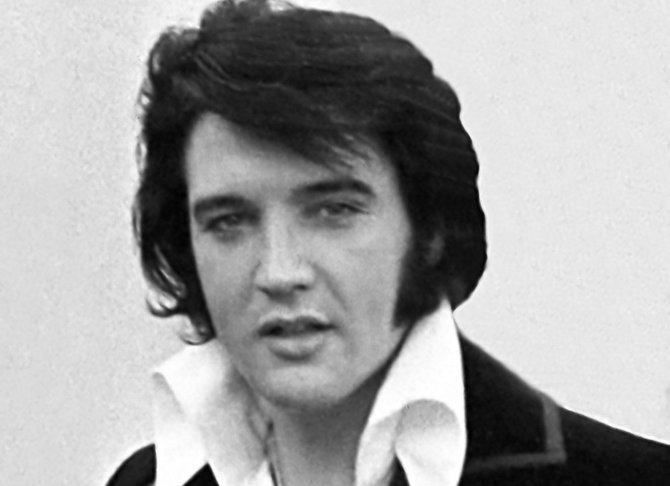What does Elvis have in common with Daft Punk? Pop music holds the answer. Photo by Courtesy Ollie Atkin
Some decades in history are inseparable from the bands that they spawned. You can't have the '50s without Elvis Presley. You can't have the '60s without The Rolling Stones, and strangely enough, you can't have the '70s without the womanly voiced "women's men" of the Bee Gees. This is a phenomenon that seems decidedly absent in modern music, and when people question why our generation lacks gratifying and truly defining artists, pop music usually gets the brunt of our bitterness.
Most music listeners, no matter their genre of preference, have a skewed understanding of pop. Technically speaking, it's not just Justin Timberlake, Katy Perry and Rihanna doing staircase vocal runs, dance moves or any other assorted actions for the delight of 'tweens. "Pop music" is a generalization that describes a multitude of genres—from the rock 'n' roll of Buddy Holly and Elvis, which employed elements of country and rhythm and blues, to the dance-inducing disco of the '70s Swedish group ABBA. (And apologies in advance for this fact, but at the start, The Beatles were most definitely pop music.)
Before you pull your torches and pitchforks from storage, I'm not suggesting every classic rock band should be booted from the Rock and Roll Hall of Fame and slapped on the charts alongside Nicki Minaj's signature brand of personality-swapping insanity. But then again, I'd greatly enjoy hearing "American Top 40" host Ryan Seacrest discuss the news on the latest Justin Bieber outburst followed by, "And coming up next is 'Comfortably Numb' by Pink Floyd."
Though "pop" is a vague and term, the style is most often categorized as a combination of agreeable vocal melodies, non-specific lyrics and a repetitive verse-chorus structure. This all-encompassing, definition explains why it's so easy to heap Elton John and Fall Out Boy into a single genus. However, modern audiences tend to add the foundations of soul associated with contemporary R&B and, recently, the pulsing electronic dance beats of house music.
So then, why has pop music served as such a versatile descriptor for the better half of a millennium?
The answer lies not with the genre, but with the listeners. Pop music was named in a rather simple-minded manner, like "fish sticks" or "Snakes on a Plane." It means whatever is popular. This goes farther than basic musicality, applying to the lyrical content and to the method in which it is delivered.
I'll intentionally skirt the issue of America's mutable morality meter here and just ask you to look at the titles of today's pop hits. It isn't difficult to see a pattern. We have Daft Punk's "Get Lucky," Maroon 5's "One More Night," and—Walt Disney help us all—Selena Gomez's "Come & Get It." To put it plainly, our society likes sex and partying, so songs talk about sex and partying, as subtly or blatantly as they please.
Our pop music doesn't have anything to say because, essentially, we don't have as much to say—at least not in comparison to past generations that faced wide-scale warfare. Not every popular song dealt with the concerns of the day. Some of the more chipper songs intentionally side-stepped the issues, such as the Lovin' Spoonful's "Do You Believe in Magic?" or Percy Sledge's "When a Man Loves a Woman." These artists were aware of the problems plaguing their fellow man, and they chose to write cheerfully, about girls and cars and single-minded men in love. Sometimes you write about little heartbreaks to get you through the big ones.
I make no pretense that calling this information out is going to create a musical renaissance or redefine pop music to be poignant again. It's probable that if you adore current pop music, you'll continue to adore current pop music, and the same applies for those who despise rising pop acts like the pseudo-country Florida-Georgia Line or revamped and virulent-looking Miley Cyrus. But next time you're flipping through radio stations and pondering how poorly pop music is faring, consider the fact that, for better or worse, that's exactly what most people want to hear.



Comments
Use the comment form below to begin a discussion about this content.